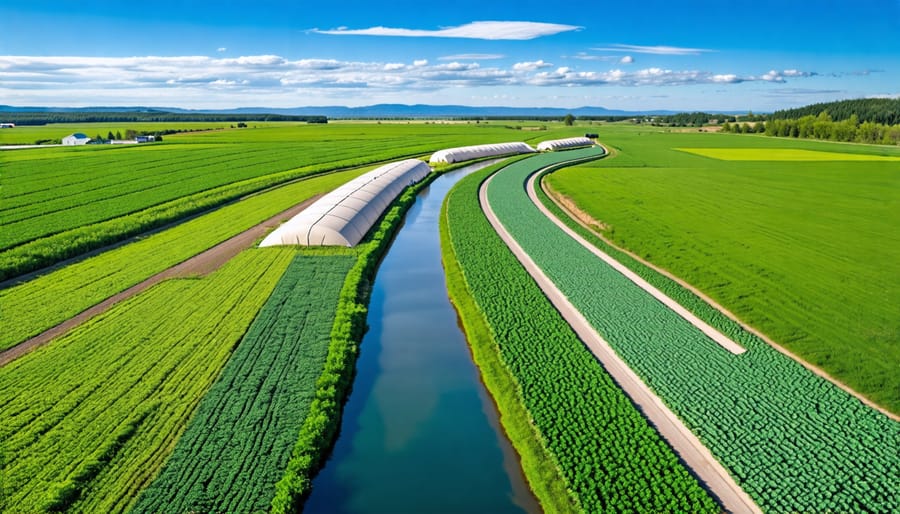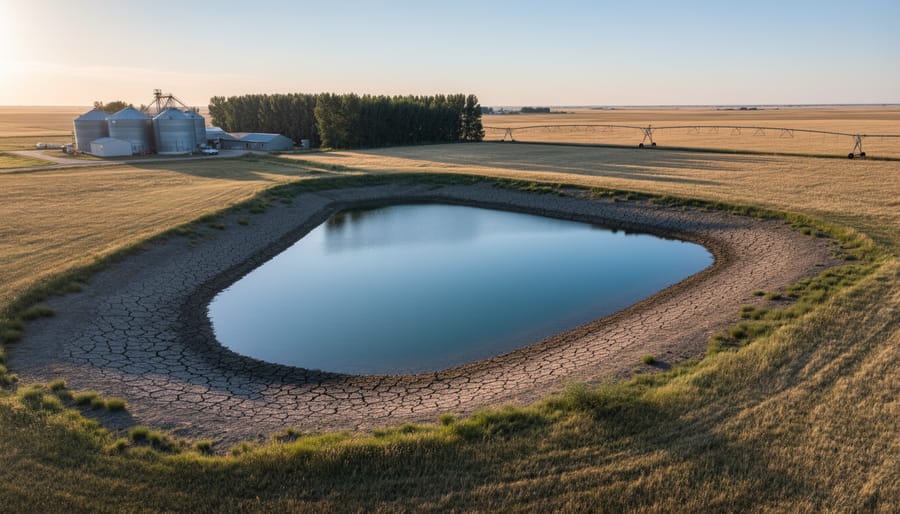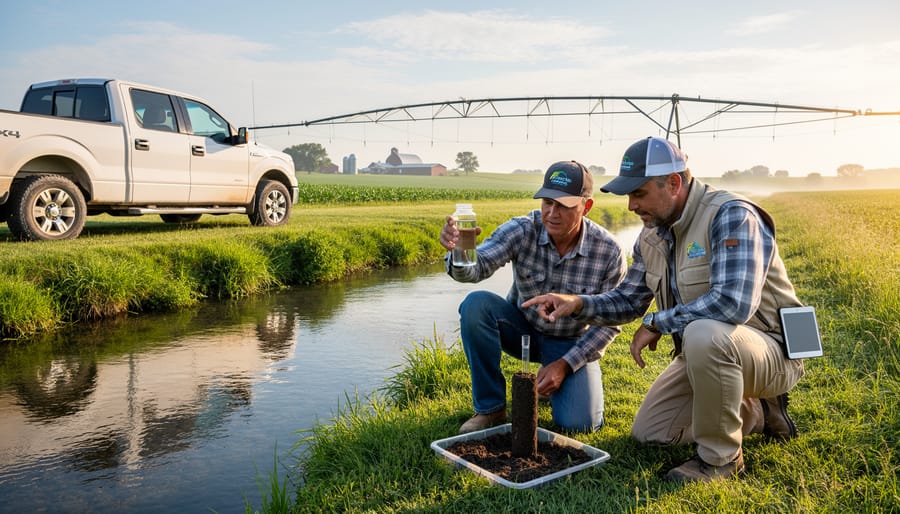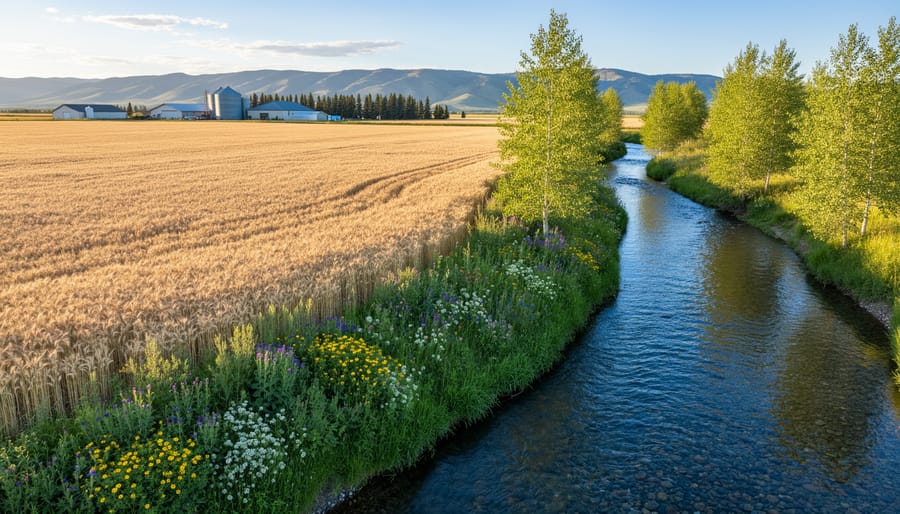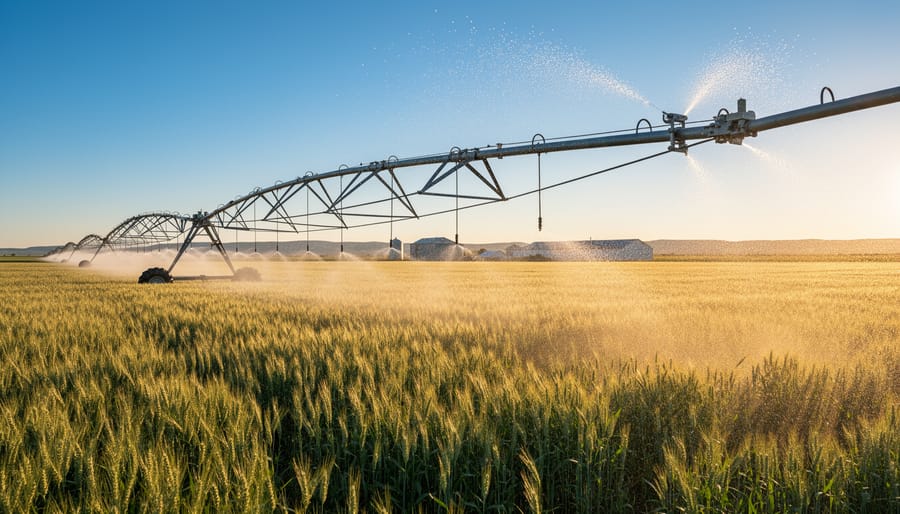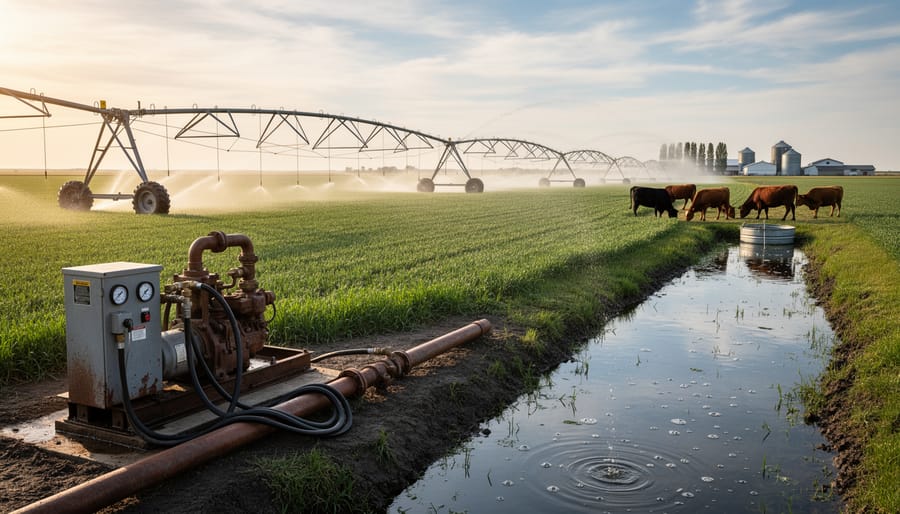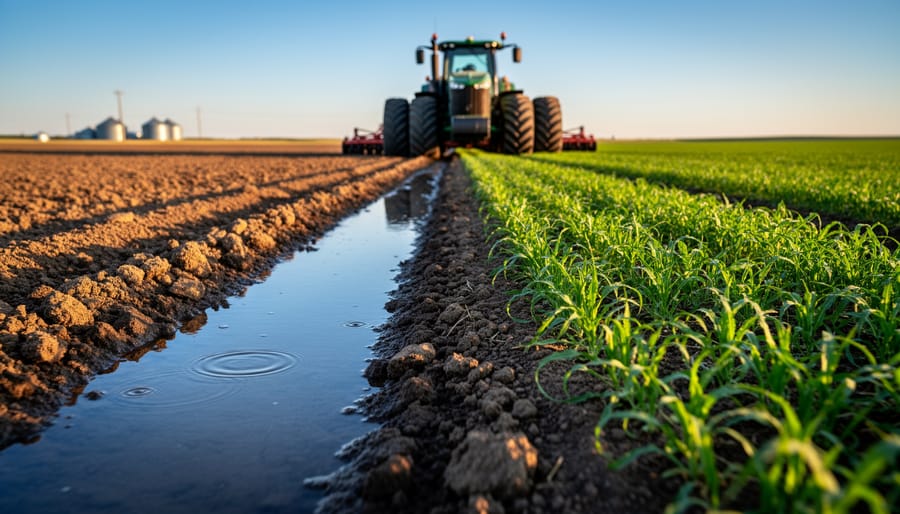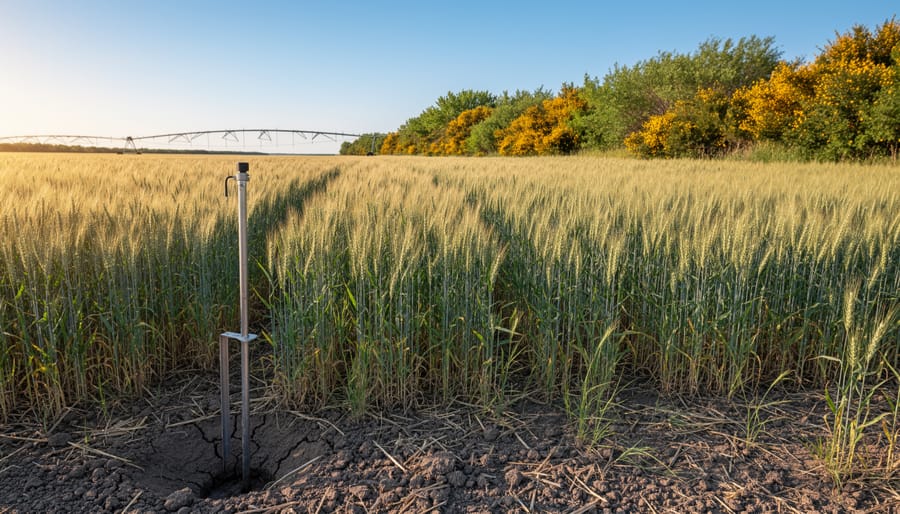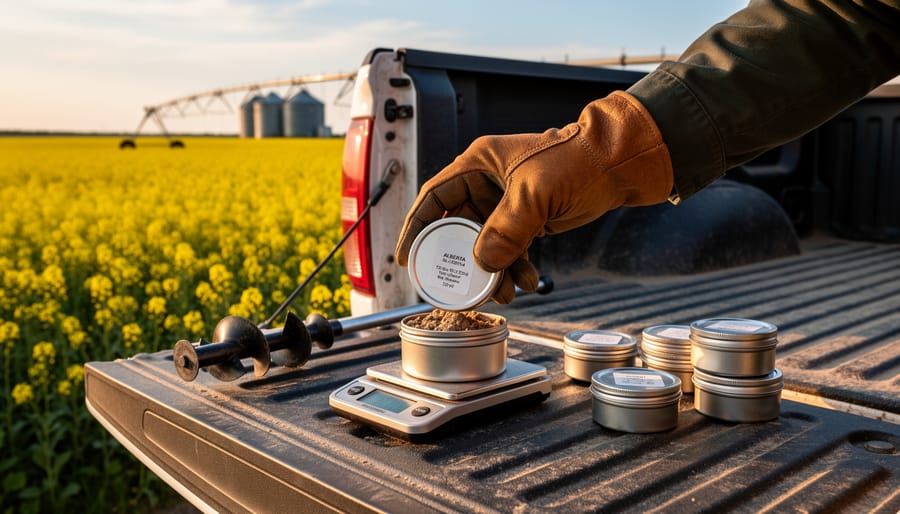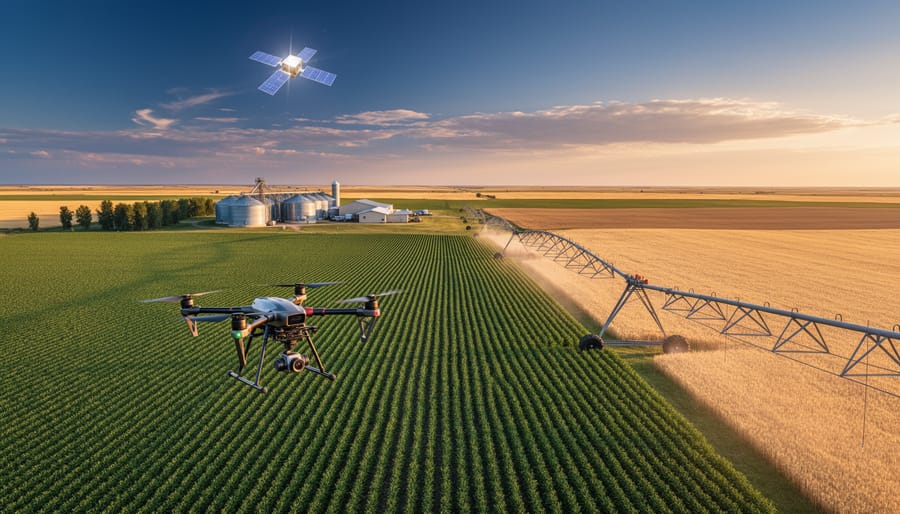Organic farming’s reliance on natural fertilizers and soil amendments has led to an alarming rise in water pollution across rural Alberta. Manure runoff, improper composting, and overuse of “organic” pesticides are contaminating groundwater, rivers, and lakes with nitrates, phosphates, and toxic chemicals. This silent crisis threatens aquatic ecosystems, wildlife, and human health in farming communities province-wide.
As stewards of the land, organic farmers must confront this issue head-on to protect our precious water resources. By implementing scientifically-proven best practices and partnering with local conservation groups, we can stem the tide of pollution while still producing healthy, sustainable food. The time for action is now – before irreparable damage is done to Alberta’s waterways and those who depend on them. Together, let’s ensure organic farming lives up to its promise of environmental responsibility.
Understanding Organic Water Pollutants
Manure and Animal Waste
Improper manure management can have significant impacts on water quality in Alberta and across Canada. When manure is not stored, handled, or applied correctly, it can lead to nutrient runoff into nearby waterways. Excess nutrients, such as nitrogen and phosphorus, can cause algal blooms and eutrophication, depleting oxygen levels and harming aquatic life. Manure may also contain bacteria, viruses, and other pathogens that can contaminate water sources used for drinking, irrigation, or recreation. To minimize these risks, Alberta farmers should adopt best practices for manure management, such as proper storage in lined lagoons or covered structures, timely application based on crop needs and weather conditions, and maintaining adequate setbacks from water bodies. By implementing these strategies and staying informed about provincial regulations, organic farmers can play a critical role in protecting our shared water resources while maintaining the health and productivity of their land.
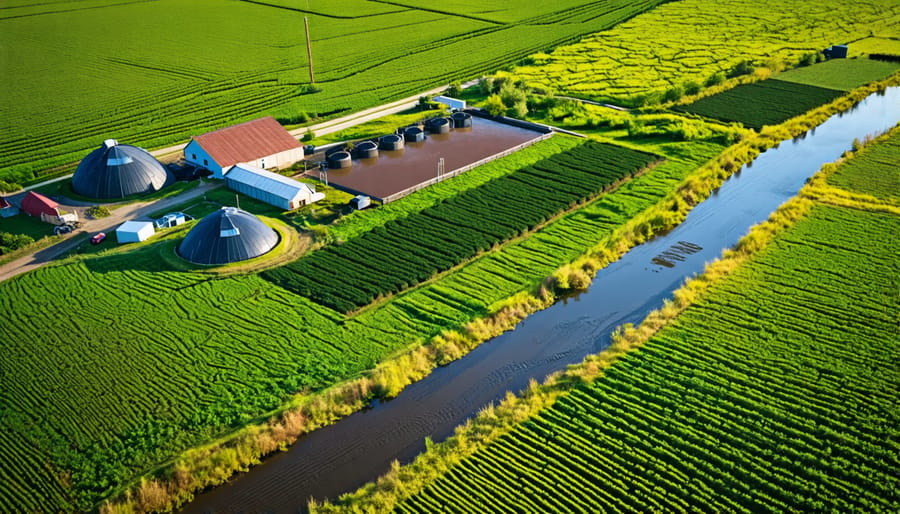
Pesticides and Fertilizers
Organic pesticides and fertilizers, while generally considered safer alternatives to synthetic options, can still contribute to water pollution if not managed properly. When these substances are applied in excess or at inopportune times, they may leach into nearby water sources or runoff during heavy rainfall events. For instance, organic fertilizers like manure or compost can lead to nutrient pollution, promoting algal blooms that deplete oxygen levels and harm aquatic life.
To minimize the impact of organic inputs on water quality, Alberta farmers should adopt best management practices such as:
- Conducting soil tests to determine appropriate application rates
- Timing applications to avoid periods of heavy rain or irrigation
- Maintaining vegetated buffer zones around water bodies to filter runoff
- Implementing cover crops and crop rotation to reduce erosion and improve soil health
By working together as a community and sharing knowledge, organic farmers in Alberta can protect our precious water resources while sustaining productive agricultural systems. Seeking guidance from local agricultural extension offices and participating in farmer-led watershed stewardship initiatives are excellent ways to stay informed and contribute to collective efforts in preventing organic water pollution.
5 Strategies to Prevent Organic Water Pollution
Proper Manure Storage and Application
Proper manure storage and application are critical for preventing organic water pollution on Alberta farms. To minimize runoff, store manure in covered facilities with impermeable floors, such as concrete pads or clay-lined basins. Regularly inspect storage areas for leaks or damage. When applying manure to fields, follow a nutrient management plan that accounts for crop needs, soil type, and weather conditions. Avoid spreading manure near waterways or on frozen ground. Instead, incorporate it into the soil using techniques like injection or tillage. Planting cover crops and maintaining vegetative buffers can further reduce runoff by improving water infiltration and filtration. By implementing these best practices, Alberta farmers can protect local water quality while responsibly recycling valuable nutrients back into their soil.
Cover Crops and Vegetative Buffers
Cover crops and vegetative buffers are powerful tools for Alberta farmers to reduce soil erosion and filter pollutants, protecting our precious water resources. By planting cover crops between main crop rotations, you can improve soil structure, reduce runoff, and suppress weeds without relying on organic pesticides. Vegetative buffers along waterways act as natural filters, trapping sediment and absorbing excess nutrients before they enter streams and rivers. Implementing these practices not only enhances the sustainability of your farm but also contributes to the health of our shared watersheds. As stewards of the land, we have the opportunity to make a positive impact through these nature-based solutions.
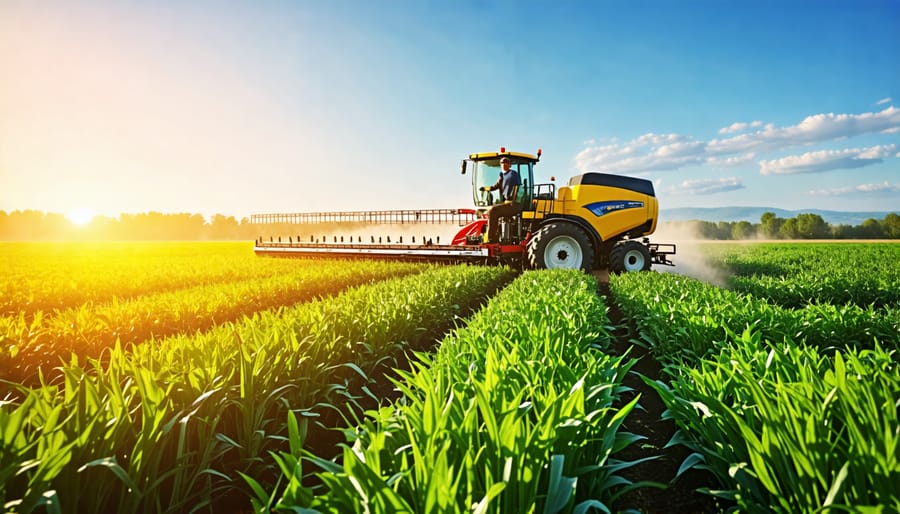
Precision Application of Inputs
Precision application of inputs is a crucial strategy for minimizing water pollution from organic farming. By using targeted methods, such as drip irrigation and spot spraying, farmers can apply fertilizers and pesticides only where needed, reducing runoff and leaching. For example, Alberta-based organic farmer John Smith has successfully reduced his farm’s environmental impact by adopting GPS-guided variable rate technology for fertilizer application. This approach not only saves resources but also limits the potential for excess nutrients to enter nearby water bodies. Organic farmers can also employ integrated pest management techniques, like companion planting and beneficial insect release, to minimize the need for pesticides. Consulting with local agricultural extension services or joining farmer networks can provide valuable guidance on implementing these precision methods. By embracing targeted input application, organic farmers in Alberta and beyond can play a vital role in protecting our shared water resources while maintaining productive and sustainable operations.
Rotational Grazing
Rotational grazing is a sustainable livestock management practice that can help prevent overgrazing and manure buildup, reducing the risk of organic water pollution. By dividing pastures into smaller sections and moving animals periodically, farmers allow vegetation to recover and minimize soil erosion. This practice also distributes manure more evenly across the land, preventing excessive nutrient runoff into nearby water sources. Implementing a well-planned rotational grazing system can improve pasture health, increase forage production, and enhance overall farm sustainability. Alberta farmers can consult local agricultural organizations or extension services for guidance on designing and implementing effective rotational grazing plans tailored to their specific land and livestock needs.
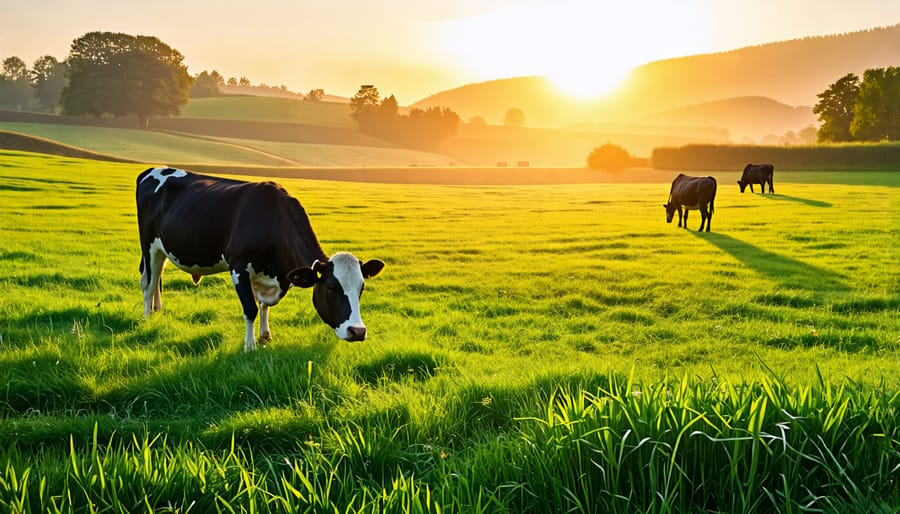
Regular Water Quality Testing
Regular water quality testing is crucial for organic farmers to monitor their impact on nearby water sources. By establishing a consistent testing schedule, farmers can identify potential issues early and take corrective action before pollution becomes a significant problem. Testing should include parameters such as nitrates, phosphates, and bacteria levels. Partnering with local environmental agencies or agricultural extension services can provide access to testing resources and guidance on interpreting results. Keeping detailed records of test results over time allows farmers to track trends and make informed decisions about management practices. Addressing water quality concerns proactively demonstrates a commitment to environmental stewardship and helps maintain positive relationships with neighboring communities.
Resources for Alberta Farmers
Alberta farmers committed to protecting local water resources have access to a range of supportive organizations, funding opportunities, and educational programs. The Organic Agriculture Centre of Canada (OACC) offers invaluable resources, including their Farmer’s Blog series, which shares practical tips like how to revitalize your soil using natural methods. The Alberta Conservation Association’s MULTISAR program provides personalized assistance to help farmers develop sustainable land management strategies that benefit both their operations and local ecosystems.
Funding is available through the Canadian Agricultural Partnership, a federal-provincial initiative that supports projects focused on environmental stewardship. The Alberta Environmental Farm Plan also offers cost-sharing for implementing beneficial management practices that protect water quality. Educational opportunities abound, with workshops and field days hosted by organizations like the Forage and Grazing Associations of Alberta and the Agroforestry and Woodlot Extension Society.
Online resources are plentiful as well, with webinars and courses offered by the likes of Alberta Agriculture and Forestry and Lakeland College’s School of Agricultural Sciences. By tapping into this wealth of local knowledge and support, Alberta farmers can feel empowered to make positive changes that safeguard our precious water resources for generations to come. Together, we can build a thriving agricultural community that prioritizes both productivity and environmental stewardship.
Conclusion
In conclusion, proactive water stewardship is crucial for the long-term sustainability of organic farming in Canada. By adopting best practices such as cover cropping, precision irrigation, and integrated pest management, organic farmers can significantly reduce their impact on water resources while maintaining high yields and soil health. The Organic Transition Initiative and other support programs offer valuable resources and guidance for farmers looking to make positive changes. As stewards of the land, it is our collective responsibility to protect our precious water resources for future generations. By working together and sharing knowledge, the organic farming community in Canada can lead the way in demonstrating that sustainable agriculture practices are not only possible but essential for the health of our environment and our communities. Let us embrace this challenge with open minds, innovative spirits, and a deep commitment to leaving the land and water better than we found it.

